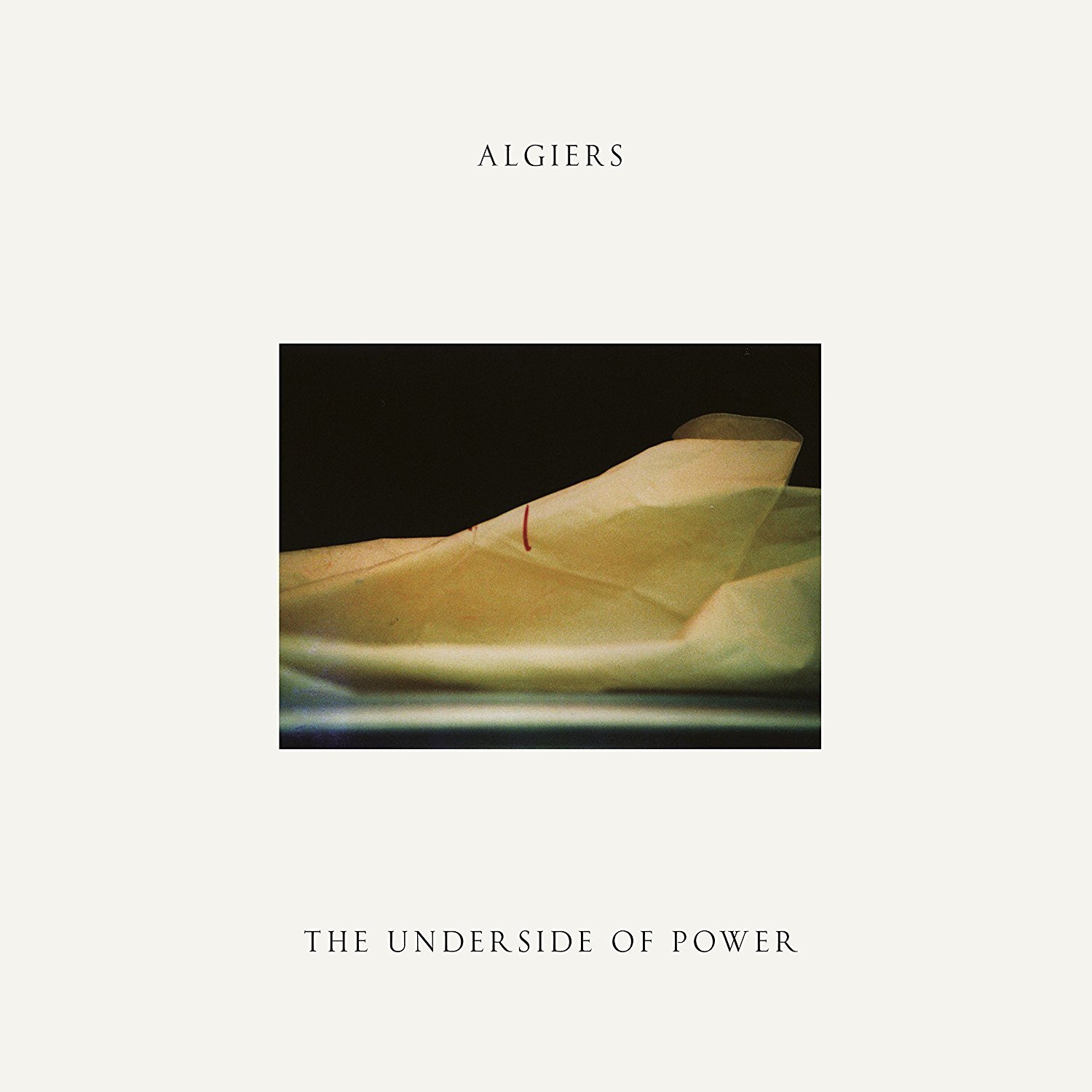Texas, 2021: A year after Donald Trump’s state of emergency declaration postponed the 2020 election indefinitely a summer heatwave has raised tensions even further on the Mexican border, where four men are playing cards in the back room of an old gas station. The acrid stench of burning rubber fills the air as smoke billows from the piles of burning tyres that litter the desert just across the border and flicker in the darkness of the early hours like fireflies. On an old transistor radio in the corner the voice of Black Panther Fred Hampton offers a timeless hope and resists the fragile peace that night brings…
Algiers’ The Underside Of Power is an incredible undertaking and for the most part an incredible achievement. The imagery it conjures is almost as harrowing and visceral as the musical and lyrical content within, a melting pot of emotions and sensory soup that leaves the listener both emboldened and exhausted, not for the faint hearted but an essential listen for musos with even a vague interest in current affairs, the historical context and freedom of speech.
Whereas Algiers’ eponymous debut release often drifted off into a self-conscious post-gospel pessimism The Underside Of Power is next level protest music. From its opening Black Panther sample and extreme gospel style it sets out a political position waaay out left and there is so much depth, theory and history to this album.
‘Cry Of The Martyrs’ is an almost biblical reworking of the story of female emancipation set to lo-fi synth and post-punk abandon, and the heavyweight subject matter and juxtaposing of musical styles continues, unabated throughout this record. Indeed, the title track, the best Motown song you’ve never heard, is made more sinister by some industrial reverb and the harrowing tale of institutional violence (and resistance to it) it tells.
There are subtle nods to Depeche Mode and Portishead (Adrian Utley is on production duties) on percussive led ‘Death March’ while ‘A Murmur, A Sign’ brings to mind the pitch-black minimalism of Suicide. Latest release ‘Cleveland’ is fully sermonic and a prophetic, apocalyptic warning shot that pulls no punches as it lurches from rapture to allusions of race wars and deals with the devil, like something out of a Salman Rushdie novel. The underlying themes of violence and death are even channelled in the mournful clarinet of instrumental ‘Bury Me Standing’.
On ‘Mme Rieux’ we hear the introduction of a choir to the already heady mix of instrumentation and ‘Plague Years’ is a Molotov cocktail of conceptual synthy darkness that plays out, as much of this album does as an omen of an American dystopia more realistic than The Road or Man In The High Tower and scarily only just around the corner. It’s world music for the new world order, dark, frantic and paranoid.
… Back in the desert as a star-spangled sun rises in the east an army truck throws up clouds of dust as it trundles by the gas station. Inside, as the four men sink the last of their bourbon and the radio drops out of tune, the thermometer already tips 100. As the frontier stirs outside, the men unclip their guitar cases and plug in their amps…




